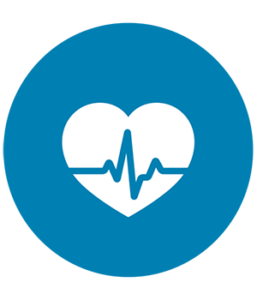Alcohol use disorder Diagnosis and treatment
Perhaps you’ve had a legal incident involving alcohol use (e.g., DUI, public intoxication). If so, seeking an are alcoholism and drug addiction disabilities is usually a practical step; it may even be court-ordered. You don’t need any special preparations for an alcohol use screening test. Our admissions navigators are available 24/7 to answer your questions about alcohol rehab and share with you AAC’s approach to treatment.
There are several online alcoholism quizzes that can help you begin to explore your relationship with alcohol. Often, these quizzes will ask 10 to 20 questions and cover the way alcohol use impacts your relationships, your self-esteem, how much you drink, and when you tend to drink. Following a positive screen, ask a few questions to get a more complete picture of the patient’s drinking pattern and determine whether the patient has symptoms of AUD. To maximize success, investors must thoroughly understand the regulatory environment, acknowledge market volatility, conduct comprehensive risk assessments, and practice financial due diligence. Diversification across various facets of the industry and maintaining a long-term investment horizon are key to mitigating risks.
View our editorial content guidelines to learn how we create helpful content with integrity and compassion. Jessica graduated from the University of South Florida (USF) with an English degree and combines her writing expertise and passion for helping others to deliver reliable information to those impacted by addiction. Informed by her personal journey to recovery and support of loved ones in sobriety, Jessica’s empathetic and authentic approach resonates deeply with the Addiction Help community. With dependence, the body has become used to regularly receiving alcohol. Dependence can be marked by cravings for alcohol and withdrawals when the person discontinues alcohol use.
Such tests are only of value if individuals who take them answer all questions accurately. An alcoholic who is in denial is, by definition, unable to use such a test as he or she will either not answer the questions honestly or will not understand that the results of the test show advanced alcoholism. See the Resources section below for a helpful advisory on how these and other biomarkers can help support alcohol screening, motivate patients to change drinking behavior, and identify returns to heavy drinking that often occur in recovery, so that you can encourage patients to get back on track. (See Core article on recovery.) The advisory includes information on each test’s window of assessment and sensitivity and specificity.
However, the National Institute on Alcohol Abuse and Alcoholism (NIAAA) points out that alcohol assessments only show whether someone is likely to have an alcohol use disorder. An alcohol screening does NOT take the place of an actual diagnosis, which would need to be completed by a physician. However, alcohol assessments offer a good start and can point you in the right direction.
- Alcohol screening and testing consists of self-administered psychological and behavioral questionnaires as well as similar tests administered by clinical or educational professionals.
- If so, seeking an alcohol assessment is usually a practical step; it may even be court-ordered.
- Some questionnaires may be particularly geared toward adolescents, but the basic questions asked on any questionnaire are very similar.
- Further, there was no
standardized training in procedures for administering Alcohol Symptom Checklists
in mental health settings.
The test contains ten multiple-choice questions centered around how much and how often you drink alcohol. It also asks questions about any alcohol-related problems or reactions you might have encountered. Alcohol use disorder can include periods of being drunk (alcohol intoxication) and symptoms of withdrawal. Here are the barriers you face in drinking less alcohol along with tips for overcoming them. You might find it helpful to join an online community of people who also want to drink less.
Appendix 4Alcohol assessment tools
The usual indications for administering any form of alcohol testing that determine the amount of alcohol in the bloodstream include assessment of a diagnosed alcoholic for detoxification purposes. Such tests are also invaluable for dealing with an alcoholic in denial who understates the amount of alcohol he or she has consumed. This is especially the case when an alcoholic seeks medical treatment for physical symptoms, such as the symptoms of liver damage, which are related to alcohol abuse, while denying that he or she is indeed abusing alcohol. If you feel that you sometimes drink too much alcohol, or your drinking is causing problems, or if your family is concerned about your drinking, talk with your health care provider.
Screening with Brief Intervention (SBI) Tools
There are several actions that could trigger this block including submitting a certain word or phrase, a SQL command or malformed data.
Start by scrutinizing the financial health of potential investments by examining balance sheets, income statements, and cash flow. Seek businesses with compelling growth prospects, innovative product offerings, or distinctive market positions that set them apart. This necessitates in-depth market analysis, an acute understanding of industry trends, and meticulous scrutiny of the target company’s financial health and management team.
Such an alcohol screening questionnaire is also handed to patients who admit to their healthcare providers that they do abuse alcohol, and are ready to begin treatment. It is even part of the post-detoxification assessment process that takes place at a residential rehabilitation center. Excessive drinking accounts for 5% of years of life lost due to early
mortality and 3% of deaths in the United States (US; Rehm et al., 2009, 2014). In the
US, 39.0% of adults drink above recommended limits (Chen et al., 2016) and 13.9% of adults meet past-year criteria for
alcohol use disorder (AUD; Grant et al.,
2015).
Understand Market Volatility
An alcohol assessment is only as good as the honesty of the person answering the questions. If the person taking the test is not honest and truthful, the test is not valuable. An alcohol assessment is a non-invasive way to help determine if someone is struggling with alcohol so that they can get the help they need before the condition worsens. Too much alcohol affects your speech, muscle coordination and vital centers of your brain.
Pros and Cons of Alcohol Assessments
Factors influencing their value include rarity, vintage, brand reputation, and storage conditions. Some notable alcohol-focused funds include the Spirited Funds/ETFMG Whiskey & Spirits ETF and the Consumer Staples Select Sector SPDR Fund. When considering these funds, look at their performance history, management fees, and the specific companies included in the fund to ensure alignment with your investment expressive arts therapy goals. In 1920, the sale and manufacture of alcohol was outlawed in the United States with the implementation of the Volstead Act. This law led to the rise of bootleggers and other criminal organizations who capitalized on the illegal trade in alcoholic beverages. Copyright © 2024, AddictionHelp.com The information provided by AddictionHelp.com is not a substitute for professional medical advice.
Genetic, psychological, social and environmental factors can impact how drinking alcohol affects your body and behavior. Theories suggest that for certain people drinking has a different and stronger impact that can lead to alcohol use disorder. The assessment looks at a person’s drinking patterns, how much they consume on typical occasions, and the dangers of long-term alcohol use, misuse, or abuse.
If you would like to obtain an alcohol screening questionnaire, or you would like to find a professional who can administer an alcohol abuse testing survey to yourself or a loved one, please call our 24-hour alcohol information line. We will help you find the right resources for alcohol testing in your area. Many people with alcohol use disorder sobriety strategies hesitate to get treatment because they don’t recognize that they have a problem. An intervention from loved ones can help some people recognize and accept that they need professional help. If you’re concerned about someone who drinks too much, ask a professional experienced in alcohol treatment for advice on how to approach that person.
Residential treatment programs
Test-retest reliability was evaluated for the full sample of patients
with two Alcohol Symptom Checklists then within stratified subsamples of
patients who completed both Alcohol Symptom Checklists in primary care or in
mental health settings. Test-retest reliability was
evaluated in real-world routine-care conditions, which provides high external
validity for the procedures used when completing the checklists and reduces the
likelihood of biasing our sample to only include people who are willing to
participate in AUD-related research. The large sample size allowed us to
obtain reasonably precise reliability estimates and to test for factors that may
increase or decrease test-retest reliability in practice.

